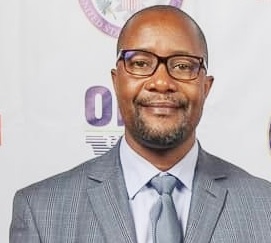By Ralph Sesay
The Minister of Information and Communications in the New Direction Government has said in Freetown that stakeholders in the body polity of the country should provoke discussions around returning the country to National List Proportional Representation Electoral System for the election of Members of Parliament.
Mr. Mohamed Rahman Swarray made this statement while serving as a panelist in the popular SLBC’s Morning Coffee together with a host of Religious and Civil Society Leaders.
The focus of discussion was the increasing political violence in the country with particular reference to the recent violence that erupted at Constituency 110 in Freetown culminating in the cancellation of the results of the bye-elections.
He maintained that critical stakeholders should push for the NLPR system in the next constitutional review process further, noting that the system would address the increasing political violence and animosity between the two traditional parties in the country.
The Proportional Representation, for him, would not create a room for bye-elections as the list of candidates for the said elections fall in line and any eventuality like deaths prescribes that the next in line in the least goes to Parliament.
He continued that the system would also help a lot in addressing the inherent issues around the low participation of disable and women in public elections.
The Information Minister expressed the commitment of his government in addressing political violence in elections and challenged the Sierra Leone Police to arrest and prosecute all those who were involved in the violence that erupted at Constituency 110 on the 24th August, 2019.
He dismissed reports of knowing Arata, the leader of the thugs that had orchestrated the violence at the said elections in the name of the SLPP.
Minister Swarray says it is possible that Arata may know him as a strong party member of the ruling Sierra Leone People’s Party.
Proportional representation system which was used in Sierra Leone’s maiden democratic elections ensures that the distribution of seats corresponds closely with the proportion of the total votes cast for each party.
The PR system is criticized by many on the basis that it often does not produce a majority government but gives dis-proportionate power to small parties.
The PR system unlike the constituency based system is also notable for reducing the direct link between an elected member and the constituency the member represents.
It will be recalled that just after the 1996 Democratic Elections which the SLPP won, the then INEC Chairman, Walter Nicol, wrote to the then Attorney General and Minister of Justice, Solomon Berewa suggesting that the country returns to the Constituency-Based Parliamentary System of Government against the backdrop that Sierra Leoneans are tired of the PR system.
He attempted to provide a number of plausible recommendations for the return to Constituency-Based District Block Representation System. His advice was however refused.
However, Sierra Leone returned to the Constituency- Based Electoral System during the 2007 Parliamentary Elections which was won by the All People’s Congress.
Information Minister calls for a return to Proportional Representation Electoral System
